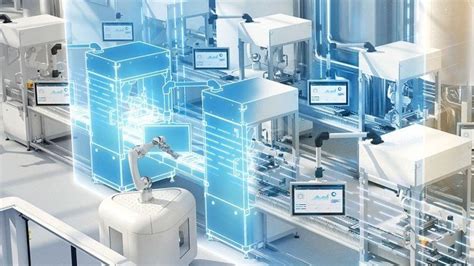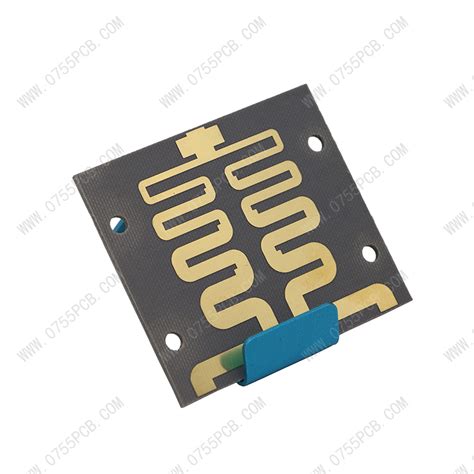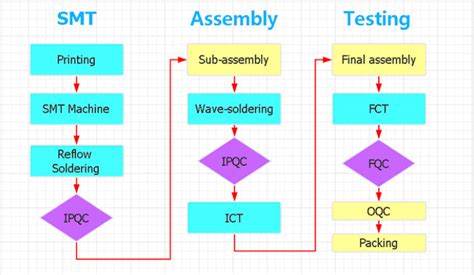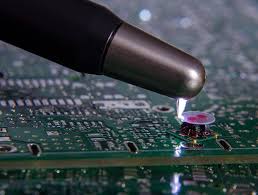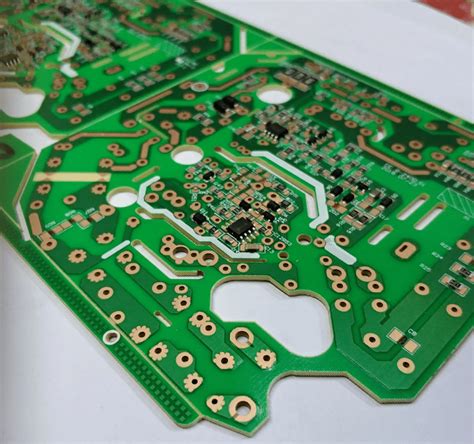Streamlining Success: The Benefits of Consigned PCB Assembly
Key Takeaways
Consigned PCB assembly (PCBA) offers significant advantages for electronics manufacturers seeking to optimize their production processes. One of the primary benefits of utilizing consigned PCB assembly is the enhanced production efficiency it delivers. This method allows companies to maintain tighter control over their inventory, ensuring that components are readily available when needed. By leveraging this approach, businesses can quickly adapt to changing market demands, without the delays associated with traditional procurement methods. Additionally, organizations can achieve cost reductions; as they control their component purchasing, there can be economies of scale that lower overall costs in the assembly process. Furthermore, the emphasis on quality control within consigned PCBA ensures that all components meet rigorous standards before they are integrated into final products. As a result, manufacturers not only enhance their operational efficiencies but also strengthen their reputation in a competitive marketplace. Ultimately, consigned PCB assembly fosters a more flexible and responsive manufacturing environment that is crucial for success in today’s fast-paced electronics sector.
Introduction to Consigned PCB Assembly
The growing complexity and rapid evolution of electronic products have made pcb assembly a pivotal component in modern manufacturing. Consigned PCB assembly, or PCBA, offers a strategic approach that allows manufacturers to manage their production processes more effectively. In this arrangement, the client provides specific components, while the assembly service handles the integration and final product creation. This collaborative method not only empowers manufacturers by ensuring they have direct control over critical parts but also enhances production timelines.
One of the significant advantages of consigned PCB assembly is the ability to maintain a tight grip on inventory management. By utilizing this model, businesses can minimize excess component storage and reduce waste associated with unsold inventory. Moreover, it fosters improved quality control, as manufacturers have greater insight into the specifications and sourcing of materials they use in their projects.
Additionally, this method allows for adaptability in production lines; as market demands shift or new technologies emerge, companies can swiftly adjust their materials and processes without being hampered by inflexible supplier agreements. In essence, consigned PCB assembly stands out as a flexible and efficient option for entities seeking to optimize their manufacturing processes while ensuring high-quality outputs. The move towards this type of assembly not only aligns production modalities with business strategies but also enhances overall operational efficacy in a competitive electronics landscape.
Benefits of Consigned PCB Assembly for Electronics Manufacturers
Consigned PCB assembly (PCBA) offers numerous advantages for electronics manufacturers, significantly enhancing their operational capabilities. One of the primary benefits is increased production efficiency. By allowing manufacturers to supply their own components, consigned PCBA enables a more streamlined assembly process. This can lead to faster turnaround times, as manufacturers have greater control over the timing and availability of critical parts needed for production.
Moreover, consigned PCBA enhances flexibility in adapting to market demands. As consumer preferences shift, manufacturing processes may need to adjust swiftly. With consigned assembly, manufacturers can easily modify production runs without being tied to supplier constraints on parts availability.
Quick Comparison of Traditional vs. Consigned PCB Assembly
| Aspect | Traditional PCB Assembly | Consigned PCB Assembly |
|---|---|---|
| Component Source | Supplier-managed | Manufacturer-managed |
| Lead Time | Potentially longer | Potentially shorter |
| Flexibility | Limited | High |
| Quality Control | Supplied by vendor | Directly managed by OEM |
Furthermore, quality control is another significant advantage of consigned PCB assembly. Manufacturers can implement their standards and inspection processes directly on the components they supply, ensuring that all parts meet their specifications before reaching the assembly line. This close-knit approach enhances reliability and can minimize defects.
“Empowering manufacturers with more control over their supply chain not only leads to improved efficiency but also fosters a culture of accountability and quality improvement.”
In conclusion, embracing consigned PCB assembly presents an opportunity for electronics manufacturers to optimize their operations through improved flexibility, strengthened quality control measures, and enhanced overall efficiency in their production processes.
Enhancing Production Efficiency through Consigned PCB Assembly
Consigned PCB assembly represents a significant advancement in the production processes used by electronics manufacturers. By allowing companies to provide their own components while utilizing outside assembly services, this model facilitates a highly efficient workflow. One of the primary reasons for enhanced production efficiency in PCBA is the reduction of lead times. Manufacturers can fulfill orders more swiftly, as they are not solely dependent on suppliers for components, which often involve extended delivery times. Furthermore, consigned PCB assembly enables firms to exert greater control over inventory management, allowing them to gauge their supply without having to overstock or understock components.
Additionally, this approach encourages better communication between suppliers and manufacturers. By collaborating closely on production schedules and resources, companies can better align their operations with market demand. The flexibility inherent in consigned PCBA allows manufacturers to pivot quickly in response to changing market conditions or consumer needs. As a result, businesses can engage more effectively in just-in-time manufacturing practices which are crucial for minimizing waste and optimizing resource use.
In conclusion, leveraging consigned PCB assembly not only streamlines operational processes but also contributes significantly to overall cost reduction and efficiency improvements within the electronics sector. As companies continue to adapt to an ever-evolving landscape, the implementation of this assembly model will be pivotal in maintaining competitive advantages and fostering innovation.
Cost Reduction Strategies with Consigned PCB Assembly
Consigned PCB assembly represents a strategic approach that can significantly reduce costs for electronics manufacturers. By utilizing a consigned model, companies can manage their inventory more efficiently, subsequently minimizing excess stock and reducing storage costs. When components are provided by the customer for the PCBA process, manufacturers are freed from the burden of sourcing every part, which can lead to substantial savings in procurement costs. Moreover, as businesses leverage existing partnerships with suppliers for just-in-time delivery of components, they can further optimize their cash flow and reduce lead times. This adaptability becomes particularly valuable in environments where market demand fluctuates, enabling organizations to adapt their production schedules efficiently without incurring costly delays or obsolescence risks. Additionally, employing consigned PCB assembly enhances transparency in the manufacturing process, allowing companies to closely monitor spending and allocation of resources, which aids in identifying areas for further cost reduction opportunities. Overall, integrating this strategy not only streamlines operations but also plays a crucial role in maintaining a competitive edge within the electronics market.
Flexibility in Production: Adapting to Market Demands
In the rapidly evolving world of electronics, companies must be agile to meet the shifting market demands. Consigned PCB assembly offers a significant advantage in this regard by allowing manufacturers to adapt their production processes with ease. By embracing pcba, businesses can better manage inventory levels, responding quicker to fluctuations in demand without the burden of excess stock. This flexibility enables organizations to manufacture a variety of products efficiently, ensuring they can pivot when necessary and seize new opportunities as they arise. Furthermore, consigned pcb assembly facilitates collaborative relationships with suppliers, allowing manufacturers to source components based on real-time market needs rather than forecasting. This can lead to enhanced responsiveness and reduced lead times, ultimately benefiting clients and end-users. Overall, the flexibility provided by consigned PCB assembly is a fundamental aspect that empowers electronics manufacturers to stay competitive in an ever-changing landscape.
Ensuring Quality Control in Consigned PCB Assembly Processes
In the world of consigned PCB assembly, maintaining stringent quality control measures is paramount to ensure the final product meets industry standards and customer expectations. The PCBA process involves intricate steps where components are sourced, assembled, and tested. To achieve a high-quality outcome, businesses must implement a proactive approach that includes thorough assessments at each stage of production. This begins with the selection of reputable suppliers who provide components with verifiable quality certifications. During the assembly phase, employing advanced technology and automated systems can significantly minimize human error, contributing to overall reliability in the final product. Furthermore, utilizing inline testing can facilitate early detection of defects, allowing for timely corrections before the assembly process proceeds too far. Regular audits and continuous training for assembly personnel further bolster quality assurance, ensuring that all team members are up-to-date with the latest standards and best practices in PCB assembly. The emphasis on quality not only mitigates risks but also enhances customer satisfaction by delivering reliable electronic products consistently. By prioritizing these quality control measures within consigned PCB assembly processes, organizations can ensure they remain competitive in a rapidly evolving market while fostering trust with their clientele.
Streamlined Supply Chain Management in Electronics Manufacturing
In the competitive landscape of electronics manufacturing, streamlined supply chain management is crucial for maintaining efficiency and minimizing costs. Utilizing consigned PCB assembly practices allows manufacturers to optimize their procurement processes by reducing inventory levels and mitigating excess stock issues. This method ensures that the necessary components are readily available when needed, enhancing the overall effectiveness of PCB assembly operations. By adopting a just-in-time approach, companies can respond swiftly to market demands while significantly improving their cash flow situation. Furthermore, this strategy encourages better collaboration with suppliers, fostering stronger partnerships that can lead to innovations in the design and production phases. As organizations refine their supply chain practices, they not only benefit from reduced delays but also gain improved quality control throughout the PCBA process. By leveraging modern technology and communication tools, manufacturers can track components more effectively, ensuring that every aspect of the assembly aligns with precise specifications and quality standards. Ultimately, an efficient supply chain not only enhances production timelines but also strengthens a company’s position in the ever-evolving electronics market.
Conclusion: The Future of Consigned PCB Assembly in the Electronics Sector
As the electronics sector continues to evolve, the pcb assembly process, particularly through consigned PCB assembly, is poised for significant growth. This method not only fosters collaboration between manufacturers and suppliers but also enables companies to adjust to rapidly changing market demands. By embracing consigned PCBA, businesses gain increased control over their production timelines and resources, ensuring that they can react promptly to shifts in consumer preferences or technological advancements. Furthermore, as companies prioritize higher quality standards, the flexibility offered by consigned models promotes rigorous quality assurance, leading to improved product performance and reliability. Ultimately, as organizations seek to optimize their operational efficiency and reduce overhead costs, the integration of consigned PCB assembly is likely to become a staple strategy for thriving in a competitive landscape, making it a crucial component of the future in electronics manufacturing. The path ahead will demand an acknowledgment of these benefits while strategically navigating the challenges that may arise, ensuring that pcba processes remain both innovative and effective.
Conclusion: The Future of Consigned PCB Assembly in the Electronics Sector
As the electronics sector continues to evolve, the adoption of consigned PCB assembly (PCBA) is likely to become increasingly prevalent. The flexibility offered by this model allows businesses to better respond to the dynamic demands of the market, ensuring that production schedules can align with consumer needs. Furthermore, by maintaining higher levels of quality control, companies can significantly reduce the risk of defects in their products, ultimately enhancing customer satisfaction and loyalty.
Additionally, streamlined supply chain management plays a critical role in optimizing production processes. Consigned PCBA enables manufacturers to maintain tighter control over inventory levels and manage resources more efficiently, minimizing delays and reducing costs associated with excess inventory. This strategic approach not only promotes operational efficiency but also fosters innovation as manufacturers can allocate resources toward research and development rather than managing a complex supply chain.
Looking ahead, it is clear that consigned PCB assembly will remain a vital component for companies aiming to enhance their competitive edge in the rapidly changing electronics landscape. As industry players continue exploring its benefits, it is crucial for them to adapt and innovate within this framework to meet not only current demands but also anticipate future trends. This proactive approach will be essential for sustaining long-term growth and success in an ever-competitive market environment.
FAQs
What is consigned PCB assembly?
Consigned PCB assembly refers to a manufacturing process where a company provides the components needed for production to the assembly house. This model allows businesses to maintain control over their parts, ensuring they meet specific quality standards.
What are the key benefits of consigned PCBA?
The primary benefits of consigned PCBA include improved flexibility in production schedules, enhanced quality control, and potential cost reductions. Companies can also better manage their supply chains by sourcing components according to their preferences.
How does consigned PCB assembly enhance production efficiency?
By allowing manufacturers to oversee component procurement, consigned PCB assembly facilitates a more agile and responsive production process. This responsiveness enables better adaptation to market changes and customer demands.
Are there any risks associated with consigned PCBA?
While there are many advantages, some risks include the potential for inventory mismanagement and reliance on external suppliers for component quality. However, these risks can be mitigated with careful planning and relationship management with suppliers.
How does flexibility play a role in consigned PCB assembly?
Flexibility is crucial in today’s fast-paced electronics industry. Consigned PCB assembly allows businesses to quickly adjust their production strategies based on changing market demands or customer specifications, thereby maintaining competitiveness.
To learn more about how consigned PCB assembly can benefit your business directly, please click here: Consigned PCB Assembly

